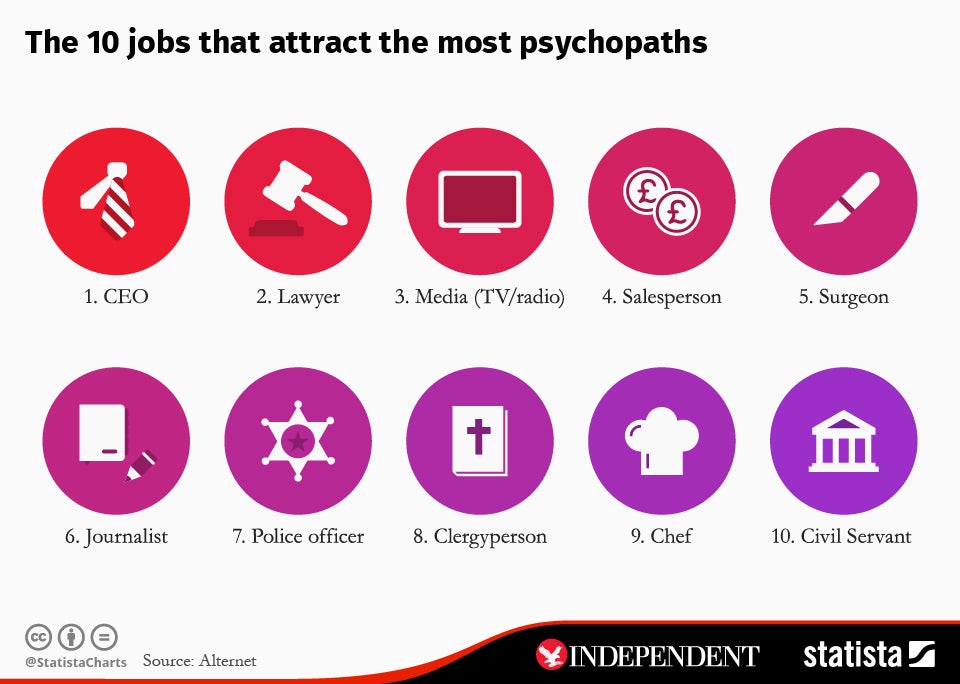The moment psychopaths realised they were psychopaths
The disorder is prevalent in between 0.2 and 3.3 per cent of the population

Psychopathy is a popular area of interest in psychology, attracting questions from how to spot a psychopath to how to tell the difference between a psychopath and a sociopath.
Chances are you know a psychopath - the disorder is prevalent in between 0.2 and 3.3 per cent of the population.
But how do psychopaths know they are psychopaths?
The question was posted on Quora by Athena Walker, who describes herself as a "diagnosed psychopath who researches the topic at great length".

Ms Walker describes how being aware she was different from other people led to a diagnosis of psychopathy.
"Finding out about the condition was not an all at once revelation," she writes. "It took place over a number of years.
"However, it was very apparent that I was quite different than those around me. I could tell this from an early age, as soon as I was aware of other peoples actions not matching my own. I didn't feel as they felt and that was obvious."
Mental Health Awareness: Facts and figures
Show all 10Her question prompted others to respond.
Julia Golaszewski realised she was different from others because she "felt nothing" when she heard about genocides "and really didn't think the holocaust was that bad".
Although she stresses that "psychopaths don't always kill people or harm people", she admits to "having frequent cravings to knock someone down or make them cry for fun".
"Although my temper can get a little out of hand, I'm able to drive my cravings to hurt my fiend into exercise. I have hurt someone before and made them bleed (not fatal) and had also kicked my dog without feelings of remorse or guilt.
"In fact, I would do it all again if I could go back. I stopped this immature behaviour because it is looked down on in society."
Peter Midgley writes that if he'd been referred to a psychiatrist when he was a child, he would have been diagnosed with Contact Disorder.: "Instead, the 'diagnosis' from the nuns and priests in my school and community was that I had the devil in me."
A psychiatrist eventually diagnosed his condition and helped him "embrace and integrate it".
"Being drunk for most of my life masked the underlying condition. I'm comfortable with my nature and it makes sense now."
If you're worried you might be a psychopath, you can take a quiz to find out.
Subscribe to Independent Premium to bookmark this article
Want to bookmark your favourite articles and stories to read or reference later? Start your Independent Premium subscription today.






Join our commenting forum
Join thought-provoking conversations, follow other Independent readers and see their replies
Comments